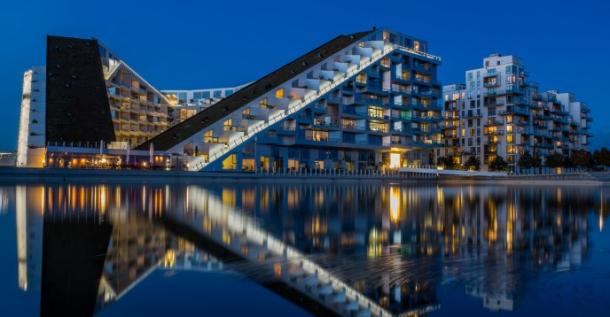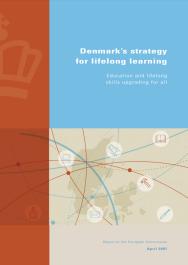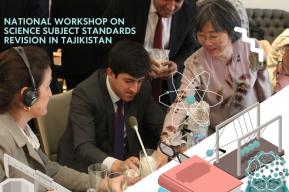Article
Denmark: Strategy for Lifelong Learning: Education and Lifelong Skills Upgrading for All, issued in 2007

Rationale of the strategy
The strategy covers the development of all forms of education, learning and lifelong skills upgrading, including informal education, adult education and continuing training, as well as education in the workplace and other settings. It aims to help future-proof Denmark. At the same time, it is a contribution towards the realization of the common European objectives of education and lifelong learning and the development of strategies and instruments for lifelong learning in the European Union. The strategy considers important challenges, such as growing demands on the workforce’s general and vocational skills, as well as the ageing of the labour force.
Concept of lifelong learning
Lifelong learning encompasses all levels and all parts of the education system, including adult education and continuing training as well as learning in the workplace, in clubs and adult education associations and during leisure activities. Lifelong learning is seen as everyone’s shared responsibility. It is to be promoted in all parts of society and in all areas in which people’s knowledge, skills and competencies are developed and applied.
Main challenges
Challenges regarding the development of lifelong learning include the following:
- Connections between education, working life and learning that takes place during leisure time need to be strengthened.
- Dialogue and partnerships between national authorities, social partners, educational institutions, enterprises, liberal adult education providers, voluntary organizations and municipal and regional stakeholders need to be strengthened.
- The quality of education at all levels must improve in order to fulfil current and future needs for competencies and knowledge in enterprises, the workforce and society.
- Cohesion between the various education pathways and levels needs to be enhanced so that individuals can obtain qualifications and skills in a flexible way.
- The education system must be more inclusive so that there is room for everyone and the number of early leavers can be reduced.
- People must be able to complete educational programmes more quickly so that resources can be used efficiently.
Main targets and measures
The strategy includes the following specific targets and initiatives across all levels of the education system:
- Preschool: language assessments for all children; introduction of subject-based teaching in the Danish language
- Compulsory basic school: culture of evaluation with implementation of national tests; creation of individualized student learning plans; clarification of the responsibilities of municipalities; continuing education of teachers and school managers
- General and vocational upper secondary education: better guidance and improved educational provision for learners with special needs; improved learning environments; increase in the number of practical training opportunities; more flexible pathways; assessment of prior learning
- Higher education: development of new professionally and practically oriented education programmes; shorter higher education programmes; establishment of elite master’s education programmes for most talented students; changes in the admission system and the organization of education programmes
- Adult education and continuing education: programmes targeting all members of the workforce, from low-skilled workers to highly qualified specialists; greater emphasis on people with low literacy and numeracy skills; measures to enhance fundamental general skills in the workforce; new forms of governance and funding
Particular feature of the strategy
The strategy includes a section on lifelong learning in liberal adult education, associations and leisure activities. These forms of learning take place in folk high schools (i.e. schools offering non-formal adult education), day high schools (i.e. schools mainly targeting low-skilled adult learners), liberal adult educational associations, study circles and voluntary work (e.g. in the form of activities for children and young people). The government aims to increase the value placed on such learning and to strengthen links between liberal adult education, learning in adult education associations and leisure activities, learning in the formal education system and learning in the workplace. Specific steps already taken in this regard include a new act on Folk High Schools in 2006, new legislation on the right to competence assessment and recognition of prior learning in adult education and continuing training, the development of documentation tools, and the introduction of a strategy in the library sector to actively support the learning of citizens.
Relevant documents that the strategy refers to
- The Danish Government. 2006. Fremskridt, fornyelse og udvikling: Strategi for Danmark i den globale økonom
- The Danish Government. 2006. Progress, Innovation and Cohesion: Strategy for Denmark in the global economy
- Denmark. Ministry of Finance. 2006. Agreement on Future Prosperity and Welfare and Investments in the Future
- The Danish Government. 2006. From Information to Knowledge Strategy
Stakeholders involved in the development of the strategy
- Ministry of Education
- Ministry of Employment
- Ministry of Culture
- Ministry of Science, Technology and Innovation
- Ministry of Economic and Business Affairs
- Ministry of Social Affairs
- Ministry of Refugee, Immigration and Integration Affairs
- Ministry of Family and Consumer Affairs
Further readings and web links
Issuing body
Ministry of Education










